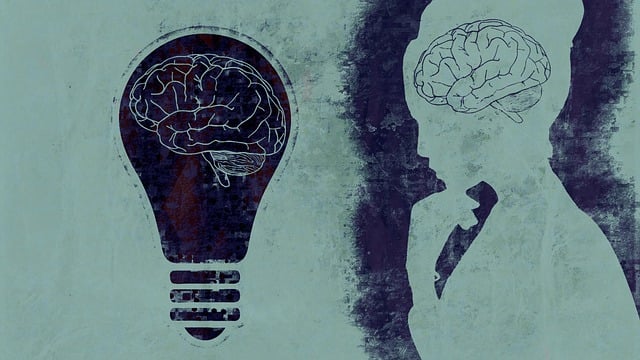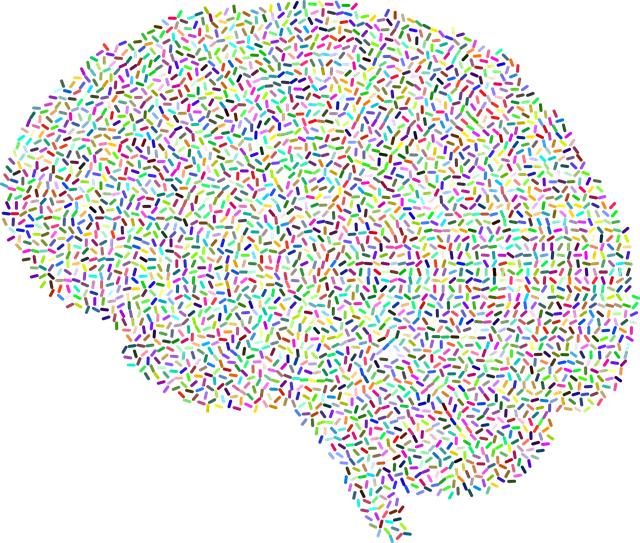Broomfield Gender-Affirming Care Therapy (BGACT) combines diverse data collection methods, robust preprocessing techniques using natural language processing, and inclusive practices to offer tailored mental health care. A case study shows BGACT's success in treating gender dysphoria, burnout, and low self-esteem through self-awareness exercises, challenging societal norms, and affirming care. Interpreting this data enables healthcare providers to optimize patient outcomes by identifying effective treatments, improving cultural competency, and enhancing personalized care for transgender individuals.
Mental health data analysis has evolved, becoming a powerful tool for understanding complex psychological conditions. This article delves into the critical process of interpreting data, highlighting essential techniques and methodologies. We explore the impact of Broomfield Gender-Affirming Care Therapy (BGACT) through a case study, demonstrating its effectiveness in patient outcomes. Understanding data collection and preprocessing is fundamental to unearthing insights that guide personalized treatment plans. By leveraging advanced analytics, healthcare professionals can enhance care, especially for diverse populations.
- Understanding Mental Health Data: Collection and Preprocessing
- Applying Broomfield Gender-Affirming Care Therapy: A Case Study
- Interpreting Results and Enhancing Patient Outcomes
Understanding Mental Health Data: Collection and Preprocessing

Understanding Mental Health Data is a crucial step in providing effective care and tailoring treatments to individual needs. The collection of mental health data involves various methods, from self-reported surveys to clinical assessments and observational studies. This diverse range of sources ensures a comprehensive view of an individual’s mental well-being, encompassing symptoms, behaviors, and contextual factors.
Preprocessing these data is an essential phase that prepares the information for analysis. It includes cleaning the data to handle missing values, outliers, and errors, as well as transforming it into a suitable format for statistical or machine learning algorithms. For instance, text data from therapy sessions can be processed using natural language processing techniques to extract relevant themes and insights. This meticulous preprocessing step is vital, especially in specialized care settings like Broomfield Gender-Affirming Care Therapy, where nuanced understanding of patient experiences is paramount. Incorporating Conflict Resolution Techniques and Cultural Sensitivity in Mental Healthcare Practice ensures that data collection and analysis respect diversity and promote inclusive care. Moreover, Mental Health Policy Analysis and Advocacy can guide the development of more effective data-driven interventions and support systems.
Applying Broomfield Gender-Affirming Care Therapy: A Case Study

In recent years, the application of Broomfield Gender-Affirming Care Therapy (BGACT) has emerged as a transformative approach in mental health data analysis and interpretation. This therapy is designed to enhance the well-being of individuals by focusing on their unique identities and experiences. A case study highlighting BGACT’s effectiveness involves a young adult struggling with gender dysphoria, burnout, and low self-esteem. Through this therapeutic framework, they engaged in self-awareness exercises tailored to their needs. The process involved exploring personal narratives, challenging societal norms, and adopting affirming care practices.
As the individual progressed through BGACT, significant improvements were observed. Burnout prevention techniques integrated into the therapy allowed them to manage stress effectively. Moreover, confidence-boosting activities within the treatment plan enabled the patient to embrace their authentic self. This case study underscores the potential of Broomfield Gender-Affirming Care Therapy as a powerful tool for mental health professionals, offering a more inclusive and supportive environment for clients navigating complex issues related to gender identity and overall well-being.
Interpreting Results and Enhancing Patient Outcomes

Interpreting the results of mental health data analysis is a critical step in enhancing patient outcomes and tailoring treatments effectively. By meticulously examining trends and patterns, healthcare providers can gain valuable insights into what works best for individual patients. This process involves not only identifying symptoms but also understanding the complex interplay between psychological, social, and cultural factors that influence mental well-being.
For instance, a study using Broomfield Gender-Affirming Care Therapy might reveal improved mood management outcomes among transgender individuals when compared to traditional treatment methods. Such insights can then guide healthcare provider cultural competency training, emphasizing the importance of Cultural Sensitivity in Mental Healthcare Practice. This knowledge ensures that therapists and doctors are equipped to offer personalized care, ultimately improving patient satisfaction and recovery rates.
Mental health data analysis plays a pivotal role in enhancing patient outcomes. By understanding the nuances of data collection and preprocessing, we can effectively apply innovative therapies like the Broomfield Gender-Affirming Care Therapy, as demonstrated in our case study. Interpreting results from such analyses allows for tailored interventions, ultimately improving mental health services. Through these strategies, we move closer to revolutionizing care, ensuring better lives for those seeking support.














